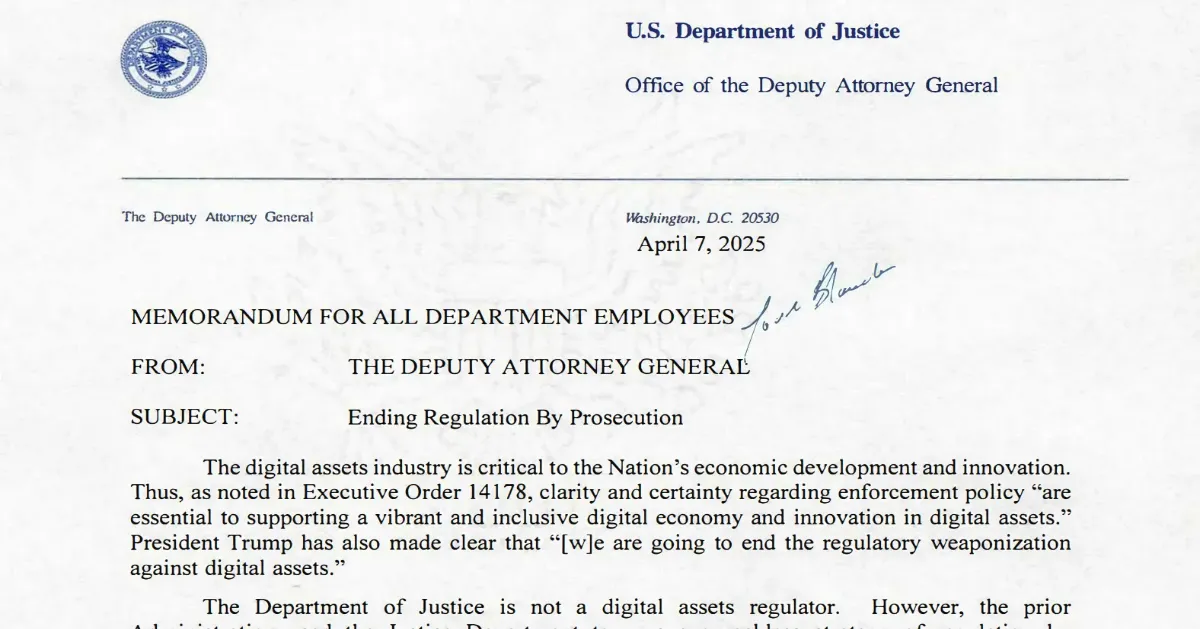Crypto gains in Ukraine face 18% income tax under new bill
The bill introduces an 18% personal income tax on activities like mining, staking, and airdrops, along with a 5% military levy. Law aligns Ukraine with EU crypto taxation models. Draft bill signals the end of Ukraine’s tax-free crypto era. Ukraine is taking a major step toward formalising cryptocurrency taxation as it pushes forward a proposal […] The post Crypto gains in Ukraine face 18% income tax under new bill appeared first on CoinJournal.

- The bill introduces an 18% personal income tax on activities like mining, staking, and airdrops, along with a 5% military levy.
- Law aligns Ukraine with EU crypto taxation models.
- Draft bill signals the end of Ukraine’s tax-free crypto era.
Ukraine is taking a major step toward formalising cryptocurrency taxation as it pushes forward a proposal to tax digital asset earnings.
The draft law, now under review by parliament, introduces an 18% personal income tax on activities like mining, staking, and airdrops, along with a 5% military levy.
This comes as the government looks to expand its wartime revenue sources and build a long-term framework to govern virtual assets in line with European standards.
The law does not treat cryptocurrency simply as property but categorises earnings from crypto-related activities as income.
This shift signals a maturing financial strategy in Ukraine, which has previously operated in a largely unregulated digital asset environment.
The proposal outlines multiple layers of taxation depending on how income is generated and reported.
Staking and mining face an 18% income tax
The draft bill confirms that all revenue generated from mining, staking, and airdrops will be subject to the standard personal income tax rate of 18%.
A separate 5% levy, referred to as the military tax, will also apply.
However, crypto-to-crypto exchanges remain exempt from taxation, a rule already adopted in countries such as Austria, France, and Singapore.
This exemption is intended to simplify operations for traders who move assets across platforms frequently without converting them into fiat currencies.
Taxpayers will be able to choose how they report their crypto income—either based on total revenue before expenses or on net income after deductions.
While the law allows flexibility, it also demands transparency from individuals and businesses engaged in crypto transactions.
Those who accept tokens as payment for goods or services or receive modified tokens through network upgrades may also be subject to value-added tax, depending on the nature of the transaction.
Crypto-to-fiat use triggers tax
The proposed legislation draws a clear line between holding and spending digital assets.
It states that owning cryptocurrency, in itself, will not trigger a tax event.
Taxes will only be applied when virtual assets are exchanged for fiat money or used to pay for real-world goods or services.
This distinction is critical for investors, who can continue to hold or swap tokens without facing tax obligations until they convert those holdings into local currency or use them in commerce.
At the same time, several types of crypto transactions could incur VAT charges.
These include paying for goods and services using tokens, receiving rewards through staking or transfers, and engaging in blockchain activities that result in token modifications.
However, the draft law mentions that some cases may be eligible for VAT exemptions, provided they meet conditions under the EU VAT Directive.
Broader digital asset rules expected by October 2025
The tax proposal is only one part of a wider regulatory overhaul.
Ukraine’s National Bank is already working on a broader digital asset framework set to launch by October 2025.
This upcoming model will be shaped around the MiCA regulation adopted by the European Union and aims to standardise crypto oversight across finance, banking, and consumer protection.
Officials hope this two-track approach—introducing taxation while preparing comprehensive rules—will help Ukraine manage the growth of its domestic crypto economy.
If the bill passes, it will end the tax-free era for crypto investors in Ukraine and make earnings from blockchain-based activities subject to the same scrutiny as income from traditional assets.
Parliament has yet to announce when the vote on the draft bill will take place.
The post Crypto gains in Ukraine face 18% income tax under new bill appeared first on CoinJournal.












![31 Top Social Media Platforms in 2025 [+ Marketing Tips]](https://static.semrush.com/blog/uploads/media/0b/40/0b40fe7015c46ea017490203e239364a/most-popular-social-media-platforms.svg)


















































































































































































![How to Find Low-Competition Keywords with Semrush [Super Easy]](https://static.semrush.com/blog/uploads/media/73/62/7362f16fb9e460b6d58ccc09b4a048b6/how-to-find-low-competition-keywords-sm.png)



